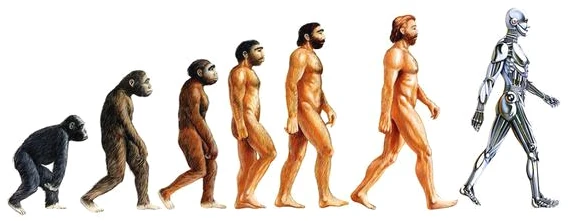http://vignette4.wikia.nocookie.net/litinawiredworld/images/6/6e/Posthuman.jpg/revision/latest?cb=20111027033258
During the week's tutorial, there was a lot of very good conversation about humanism, post-humanism and the concept of cyborg. How do we define these ideas? What is humanism? Humanism can be defined as a school of thought that champions rational and critical thinking over ideas of the divine. Humanist doctrine would state that one cannot rule by divine right - as was the case for many monarchs throughout history, in particular European history - because the existence of god has never been proven.
A post-human definition is where the line becomes blurred. As McNeill (2012, p. 65) wrote 'the digital age has complicated the definitions of self and its boundaries, it has both sustained and dismantled the idea of personal narrative'.
The sustaining of that personal narrative is evident in Facebook. You are both in control of it as you are the one with the power to like, comment or post a status, but it is also detached. You can leave your Facebook page for days, it will still be there, but people can still like, comment and share things with you in your absence. In many ways Facebook is a diary, or autobiographical account of the users interests and things they deem worthy of sharing. It should be taken into account that the things posted by a user can be trusted to be by that person, as Van Luyn (2015) said 'an author whose name appears on a book can be trusted to have written the text'. This applies to the digital realm as well.
References
Van Luyn, A. (2015). BA1002: Our Space: Networks, Narratives, and the Making of Place, Lecture 6: Networked Narratives. [PowerPoint slides]. Retrieved from http://learnjcu.edu.au
McNeill, L. (2012). There Is No "I" in Network: Social Networking Sites and Posthuman Auto/Biography. Biography: An Interdisciplinary Quarterly. 35(1), 65.

No comments:
Post a Comment
Note: only a member of this blog may post a comment.